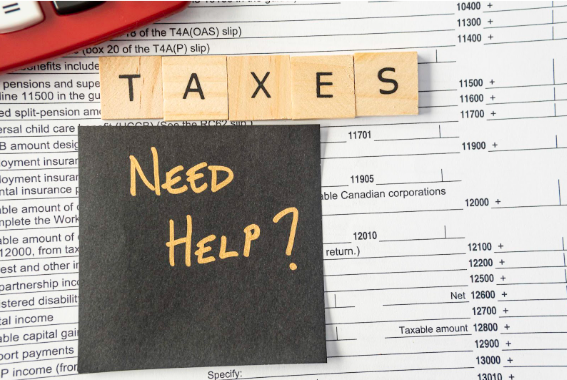
What to Do When an Emergency Disrupts Your Budget
Imagine your New Year’s resolution includes managing your finances well, prioritising budgeting, and getting rid of your debt. The first quarter of the year is almost gone and you’ve been keeping your goals running. You have all your needs met and you are even building your savings little by little. Then all of a sudden, on a bright afternoon while you were sipping a cold drink and going through reels on Instagram, a notification popped up, an emergency you need to attend to, which your salary or your savings can’t handle. You may become confused and disoriented, you can only imagine how financially stressed you will become.
Maybe it’s a car that decides to frustrate you and break down at the most inconvenient moment, or an unexpected medical bill that demands a spotlight in your financial planning. But calm down, even in emergencies, there’s what to do. Let’s take a look at what to do when an emergency disrupts your budget.
Pause and Breathe
First things first, take a deep breath. Does that work? Seriously, do it. Panic is like that one friend who thinks running around screaming will put out a fire. It won’t. Let’s look at a quick story. Mr. Anderson faced his first major financial hiccup. His laptop decided to stop working abruptly. His first reaction? Panic! After he calmed down, he could think more clearly about the next step to take. Then he realised he could actually handle the situation.
Though a very low-level example to use but it works. Irrespective of the kind of situation you find yourself in, you need to be calm first. When you’re calm, you will be able to think straight and make logical decisions. Panic can suspend your logical reasoning. You need to try to take that out, then you will be able to make a sound decision.
Now Assess the Situation

Now, calmly assess the situation. What’s the emergency? How much is it going to cost? When Mr. Anderson looked at his laptop, he had to figure out if it needed a simple fix or a full-blown replacement. Sometimes, the situation isn’t as dire as it first appears, and other times, it may be serious. But your capacity to handle any situation is almost infinite.
After you have assessed the situation and how much it will cost you, it’s time to strategise. This requires work, but stick with us, let’s take a look at the things you need to do.
Review Your Budget
Look for non-essential expenses you can temporarily cut back on. During Mr. Anderson’s laptop saga, he realised his habit of ordering takeout could take a backseat. Cooking at home became his new hobby, and honestly, it wasn’t as bad as he’d feared.
When an emergency comes, you may want to cut back on some things. If you were supposed to go on a vacation, it could be that you’ve been saving for months for this, but now, you may need to rethink.
Emergency Fund
If you have an emergency fund, now is the time for it to shine. That’s what the emergency fund is created for. If you don’t have one, don’t beat yourself up. Start small once you’re past this crisis. Even a little can go a long way when the next emergency hits.
Consider Your Options
Sometimes, the emergency fund might not cover it all, or maybe you’re still in the process of building it. That’s okay. Look into other options. Can you sell something you no longer need? Is a short-term side gig viable? When Anderson’s laptop developed issues, he sold some old gadgets that had been useless for years. They were just there, gathering dust. It didn’t cover the entire cost, but it helped.
Communicate and Negotiate
If the emergency involves bills or debts, communication is key. Reach out to creditors or service providers. Many are willing to work with you on a payment plan. When Anderson faced a huge car repair bill another time after the laptop issue got fixed, talking to the mechanic and explaining his situation helped. He worked out a payment plan that didn’t leave his wallet gasping for air. This may not always work, but you can give it a try.
As regards debt, you may want to consider a consumer proposal. However, to know the best debt relief option to go for, you need to speak with debt experts at EmpireOne Credit, so they can help you and offer insights about the best line of action to take.
Low-Interest Loan
If you can get friends to lend you money at no interest, it’s a great idea, but be sure you don’t disappoint them when it’s time for repayment, so you don’t ruin a good relationship. Other times, you may consider a personal secured loan from your bank, you may need assets as security and you could get a loan at a low interest. Credit cards can also come to the rescue, but don’t abuse them, so you don’t incur the kind of debt you can’t manage.
Learn and Adapt
Every crisis is an opportunity to learn. Once you’re through the emergency, take stock. What worked? What didn’t? How can you be better prepared next time? After Anderson’s laptop ordeal, he started setting aside a little cash every month specifically for tech emergencies.
Conclusion

Financial emergencies can feel like the world is crumbling upon you. But just like any good story, they come with lessons, growth, and the opportunity to strengthen your resilience. The experience might just add an interesting chapter to your life story, one you can look back on and say, “I got through that, I can get through anything.”
If you’re in a desperate situation where your debt keeps growing like a tree, you’re overwhelmed with bills and you’re tired, there’s help available. Your debt can be reduced by up to 80%, and interest will stop immediately. You can speak with one of our debt experts at EmpireOne Credit. Call us at (416) 900-2324 to schedule a free consultation with us. Being debt-free feels good!





